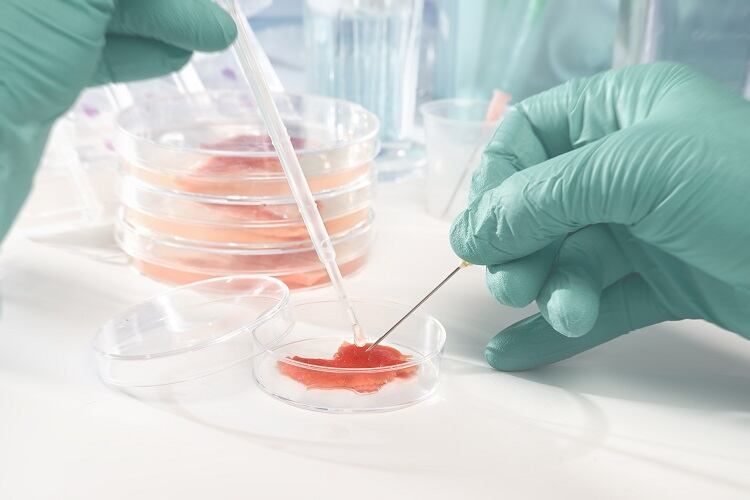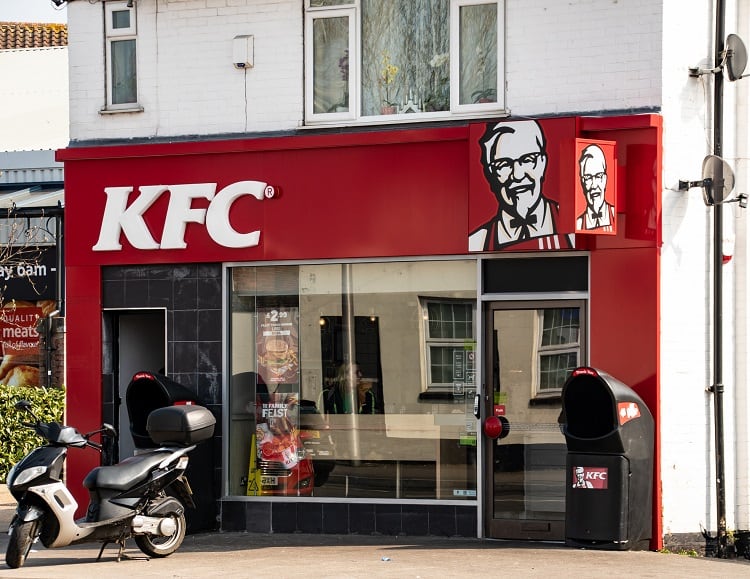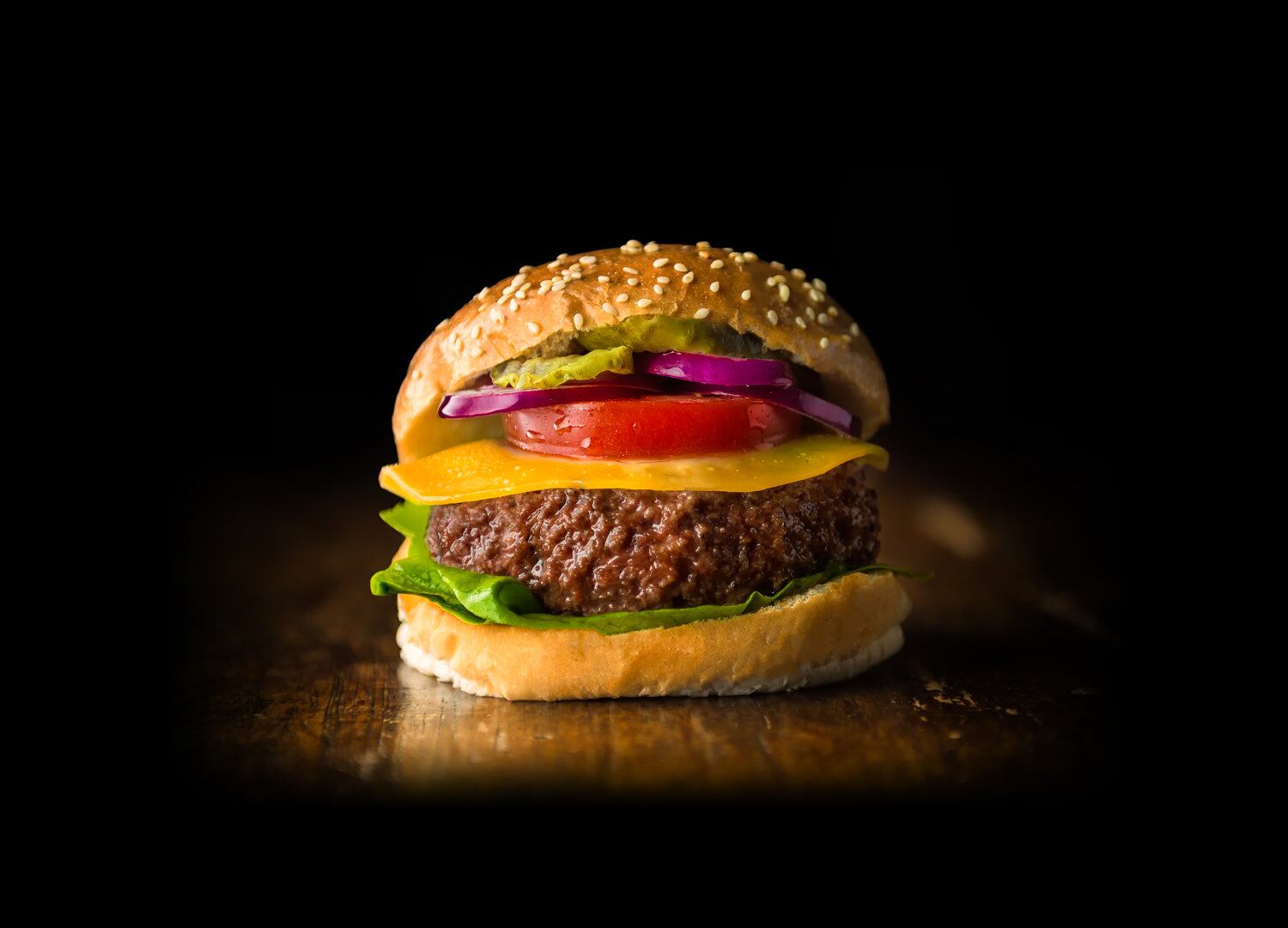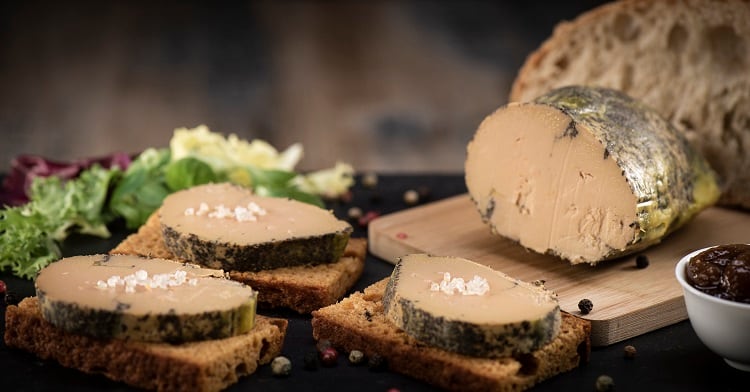The project aims to create the world’s first laboratory-produced chicken nugget, designed to mimic the taste and texture of Yum! Brands-owned KFC’s conventional counterpart.
According to the partnership, bioprinted meat, or ‘biomeat’, has ‘several advantages’. Firstly, biomeat has exactly the same microelements as the original product, minus the ‘various additives’ used in traditional livestock farming.
Lab-grown meat is also considered to be more ethical, as no animals are harmed in the process. And from an environmental perspective, some say production methods produce fewer carbon emissions than conventional meat.
Researchers from the universities of Oxford and Amsterdam, for example, argue that growing meat from cells cuts energy consumption by more than half, reduces greenhouse gas emissions 25-fold, and uses 100 times less land when compared to traditional farm-based meat production.
So how exactly does bioprinting meat work? And how will creating a hybrid nugget product – which combines chicken cells with plant-based ingredients – help advance the project towards commercialisation? FoodNavigator caught up with 3D Bioprinting Solutions co-founder Yusef Khesuani to find out.
Printing a hybrid nugget
The technology is founded on an extrusion-based bioprinter, which prints ‘bottom-up’, Khesuani explained. In this way, it is similar to a 3D printer of plastics – a technology currently used by a wide range of industries.

The bioprinter prints onto a support material known as a ‘scaffold’ that allows cells to grow and form a 3D tissue. This step ‘looks like inkjet printing’, the co-founder elaborated.
3D Bioprinting Solutions will alternate between printing layers of chicken cells and plant-based ingredients until the entire nugget is printed.
“We provide all materials that will be inside the nuggets, and what is outside the nuggets will be provided by KFC,” we were told.
3D Bioprinting Solutions uses its own proprietary, plant-based medium to feed the cells. KFC is responsible for adding breading and spices ‘to achieve the signature KFC taste’.
The finished nugget will be made from roughly 80% plant-based material (ingredients to be disclosed at launch) and 20% cell-based. This means that if the partnership is successful, KFC will not only become the world’s first vendor of a cell-based meat, but the world’s first vendor of a hybrid cell-based and plant-based product.
A unique strategy
While 3D Bioprinting Solutions aims to be the first to market, it is far from the only cell-based meat company in the sector. The co-founder estimates at least 30 companies – a combination of start-ups and larger players – are working on cultured meat products globally.
Some of the bigger names include Mosa Meat in the Netherlands, Aleph Farms in Israel, and US-based Memphis Meats and JUST Meat.
This space has exploded over the past seven years, the co-founder recounted. Yet, according to Khesuani, 3D Bioprinting Solutions is at a particular advantage.
“These [competitor] companies are focused on the technology itself, on how to get big amounts of cells.” They may do this by testing out different growth factors, or bioreactors, and in some cases by genetically upgrading cells.
“But these cells are not the final product…We are a company that focuses on 3D bioprinting technology, we understand how we can make three-dimensional structures that that’s why we decided to focus on final products. It’s another business model and strategy, and I think that is what will allow us to make some final products that could be given to people in restaurants such as KFC.”
The Russian advantage

No country has yet approved cultured meat for consumption, which is a major hurdle facing all lab-grown meat businesses. With rigorous safety assessments expected in each country, regulatory approval could take many years.
However in Russia, Khesuani predicts the regulatory process to be quicker than most. “Of course, there are different regulation stores in different countries, we understand that, but we do not have such strong limits that [they] have for example in the US with the FDA,” we were told.
“I think it will take something like 12-18 months to go through regulation here in Russia.”
As is often the case with ground-breaking technologies, ‘everybody wants to be first, to be second’. 3D Bioprinting Solutions is first and foremost concentrating on the Russian market, and by achieving regulatory authorisation, will be paving ‘an easier road’ for others in the Federation.
The inverse, however, may also be true when 3D Bioprinting Solutions decides to expand beyond Russia. “I know some companies are doing the same thing in the US, they are trying to go through regulations, so…maybe it will be easier for us in other countries [once cell-based meats are approved].”
3D Bioprinting Solutions aims to have a final product for testing by autumn 2020 and hopes to kick off the regulatory process mid-2021.





